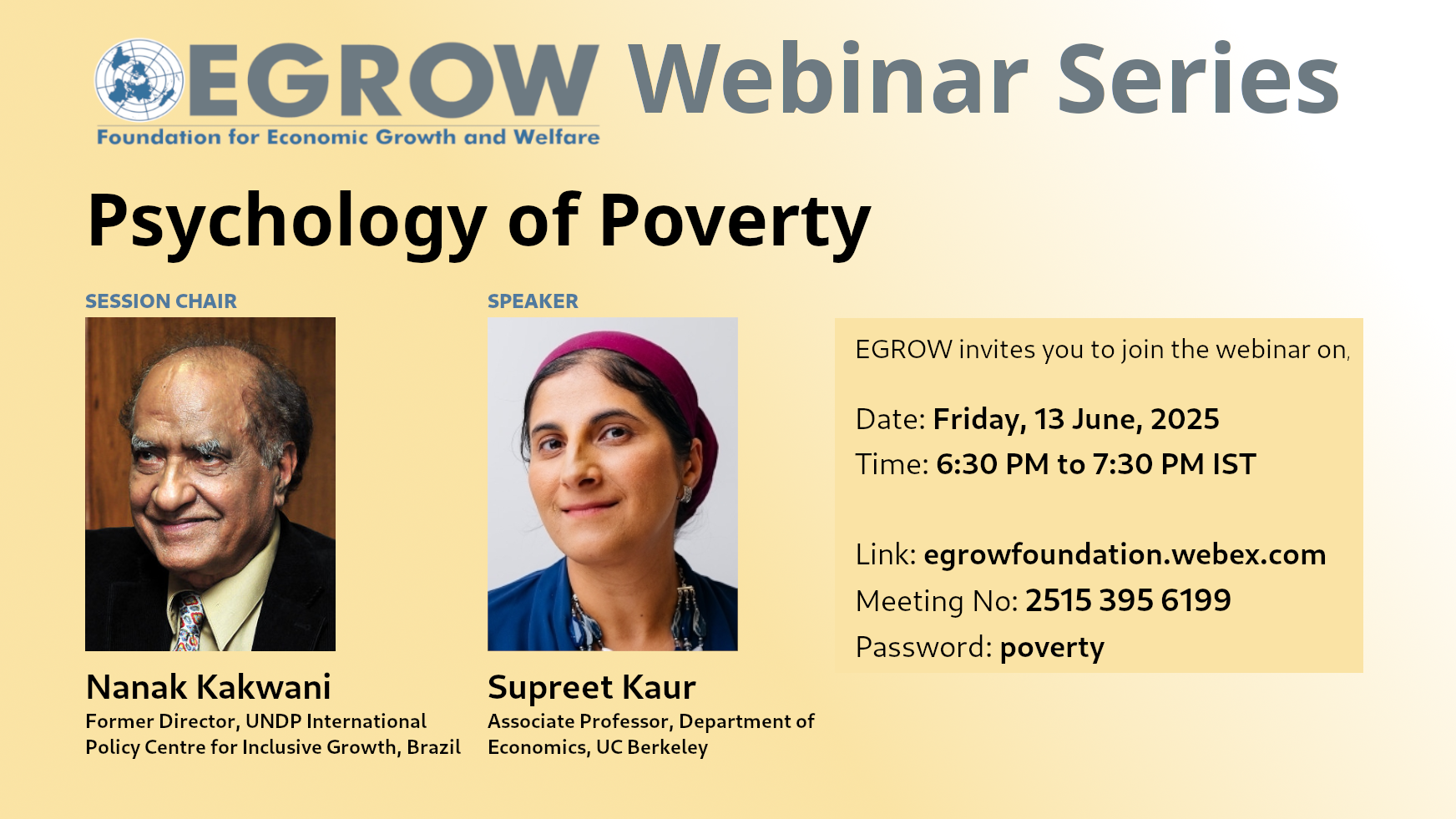Psychology of Poverty

Webinar Link
Meeting No: 2515 395 6199
Password: poverty
Certificate of Participants
To recieve certificates, please register and attend
Abstract
Living in poverty often leads to increased stress, anxiety, and a heightened risk of mental health disorders such as depression—factors that can make it even more difficult to break free from the cycle of deprivation. At the same time, mental health challenges can further impair economic outcomes by affecting productivity, focus, and long-term planning. In this webinar the panelists will delve into these interconnected dynamics to understand how poverty and psychology reinforce each other—and what can be done to address them.
About the Speakers
Nanak Kakwani
Nanak Kakwani is appointed Distinguished Fellow of the Gulati Institute of Finance and Taxation in India, September 2021. He has been Visiting Professor of Economics at the China Institute for Income Distribution at Beijing Normal University, China, since 2017. He was a Professor of Economics and Head of the Department of Econometrics for 30 years at the University of New South Wales in Sydney, Australia, during 1970–2000. He was Chief Economist and Director of the UNDP International Policy Centre for Inclusive Growth in Brazil from 2004 to 2006.
Kakwani's research areas include poverty, inequality, pro-poor growth, taxation, public policies, human development, and social welfare. He has published more than 100 papers in leading international journals (including nine papers in Econometrica) and six books published by reputed publishers like Oxford University Press, Cambridge University Press, Palgrave Macmillan, and Edward Elgar.
He was elected as a Fellow of the Australian Research Committee of Social Science and was awarded the Mahalanobis gold medal for outstanding contribution in quantitative economics. His well-known Kakwani Index has been a standard measure for progressivity in taxation and other social science.
Supreet Kaur
Supreet Kaur is an Associate Professor in the Department of Economics at UC Berkeley. Her research applies insights from psychology and economics to study the persistence of poverty and barriers to economic mobility. Her work has yielded new insights on the causes of unemployment, educational disparities, and low savings behavior in developing countries. She is the co-founder of UC Berkeley’s Psychology and Economics of Poverty Initiative, an interdisciplinary lab that develops new approaches to anti-poverty policies and programs. Through this initiative, she is leading projects to enable self-reliance through improved savings behavior in Sub-Saharan Africa, and prevent drug use among adolescents in India, which are being scaled to reach millions of individuals. Supreet received her PhD from Harvard University, her MPA in International Development from the Harvard Kennedy School, and her B.S. in Operations Research from Columbia University. She is a recipient of the U.S. National Science Foundation CAREER award, the Sloan Research Fellowship, and the Distinguished CESifo Affiliate Award in Behavioural Economics.